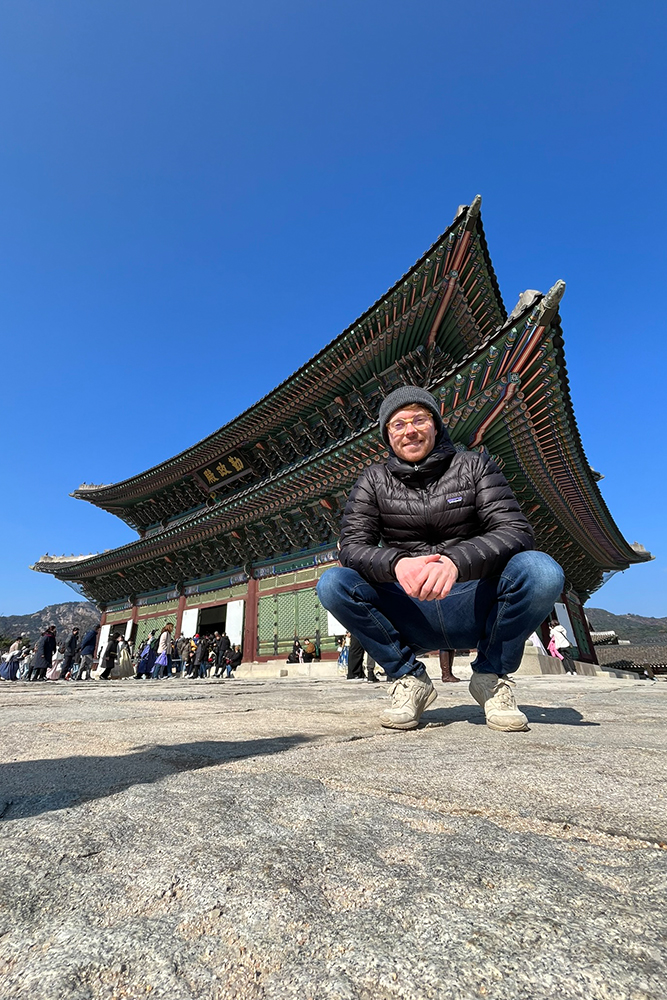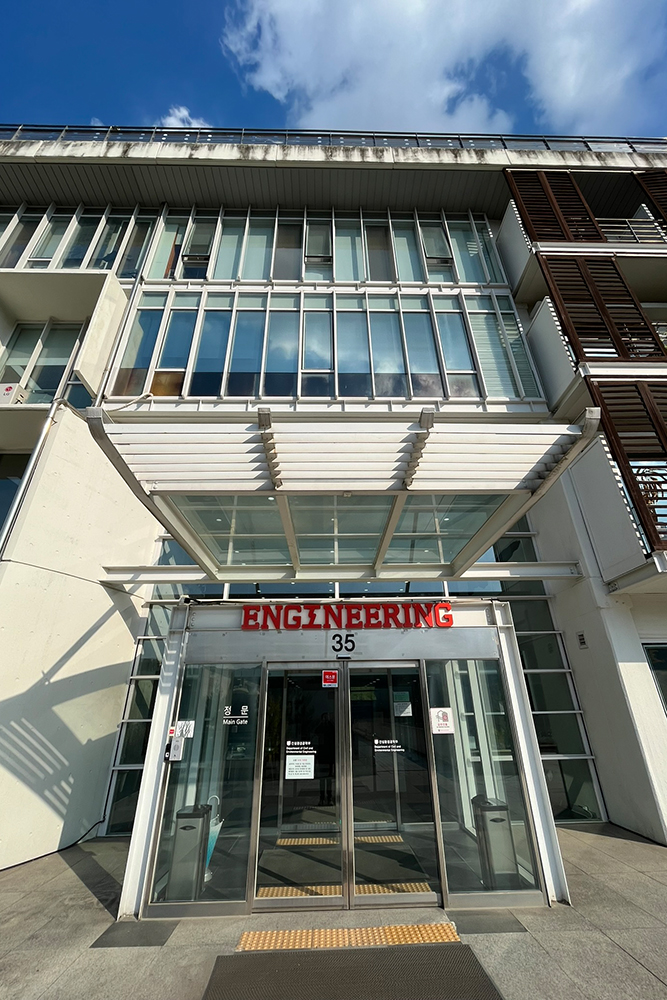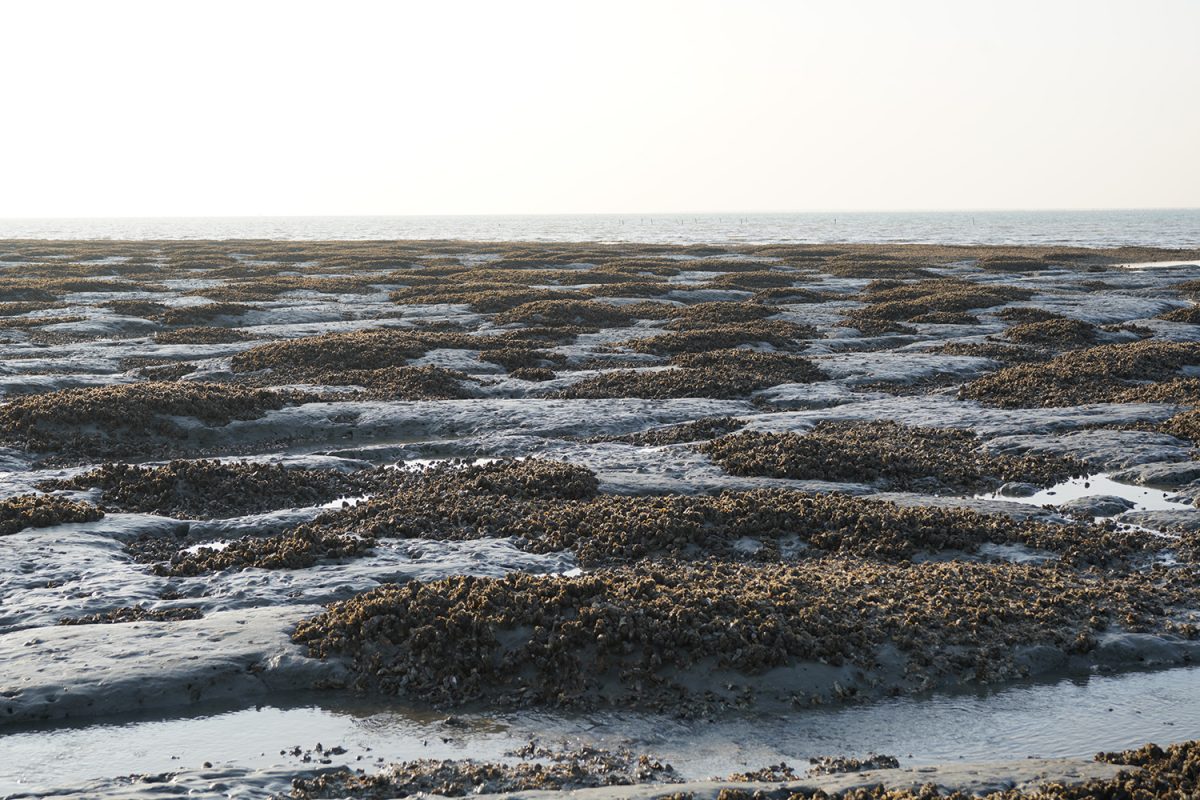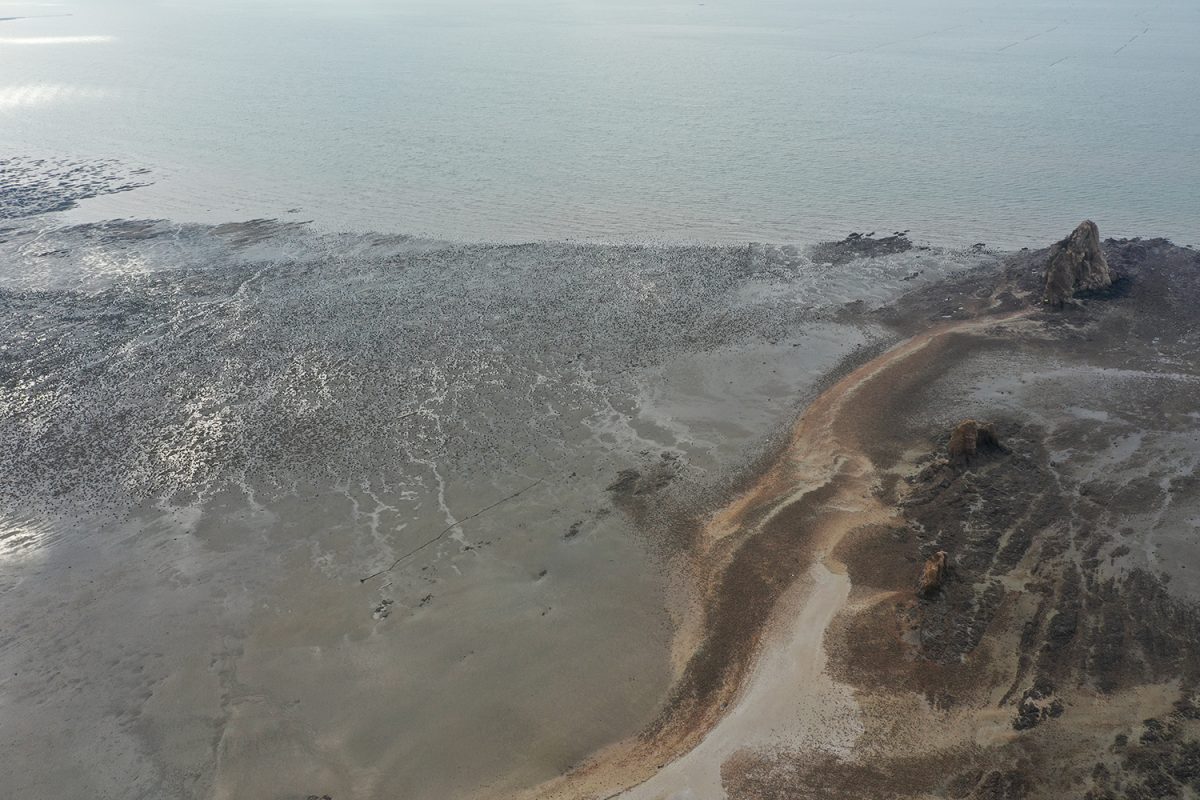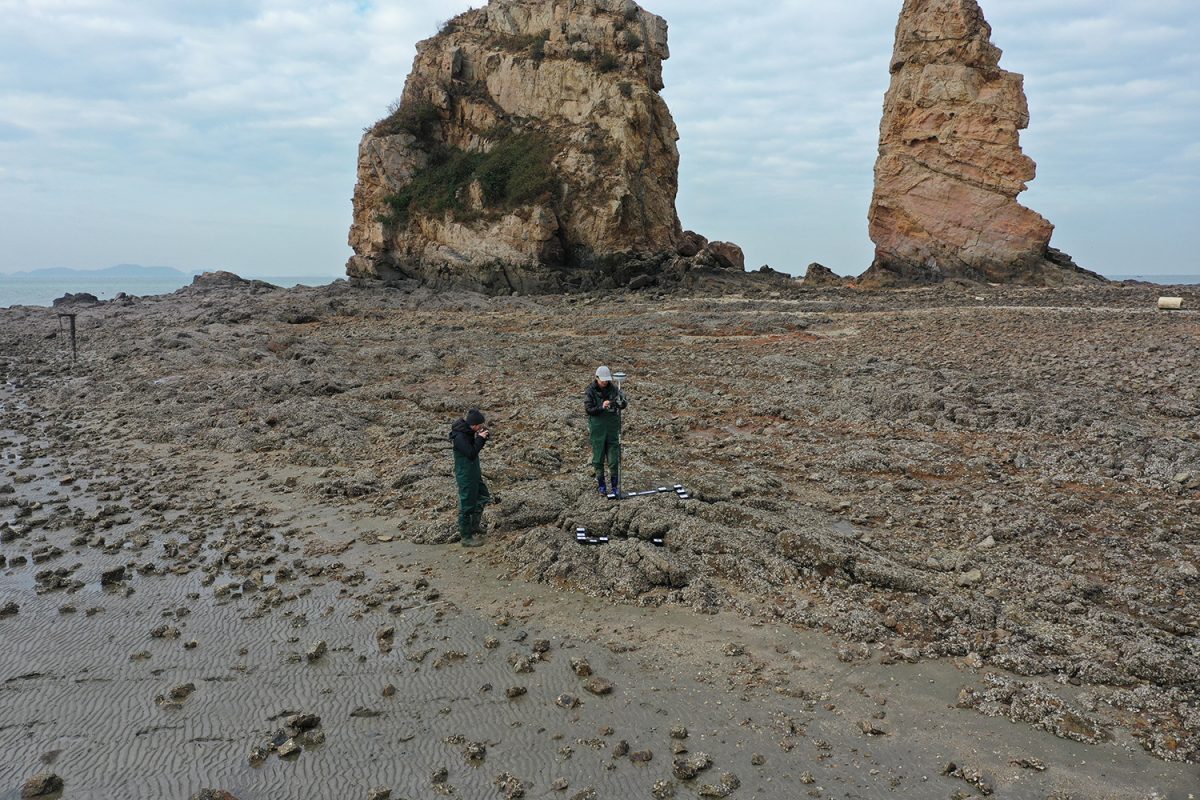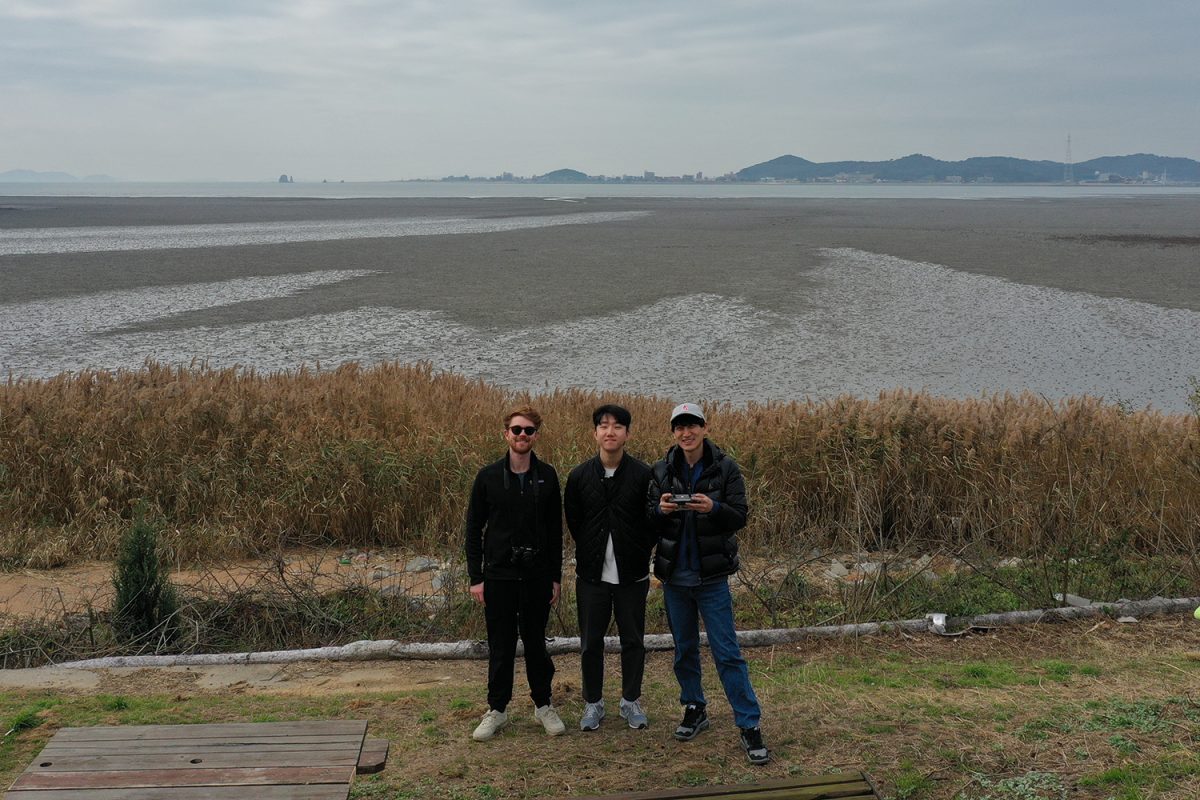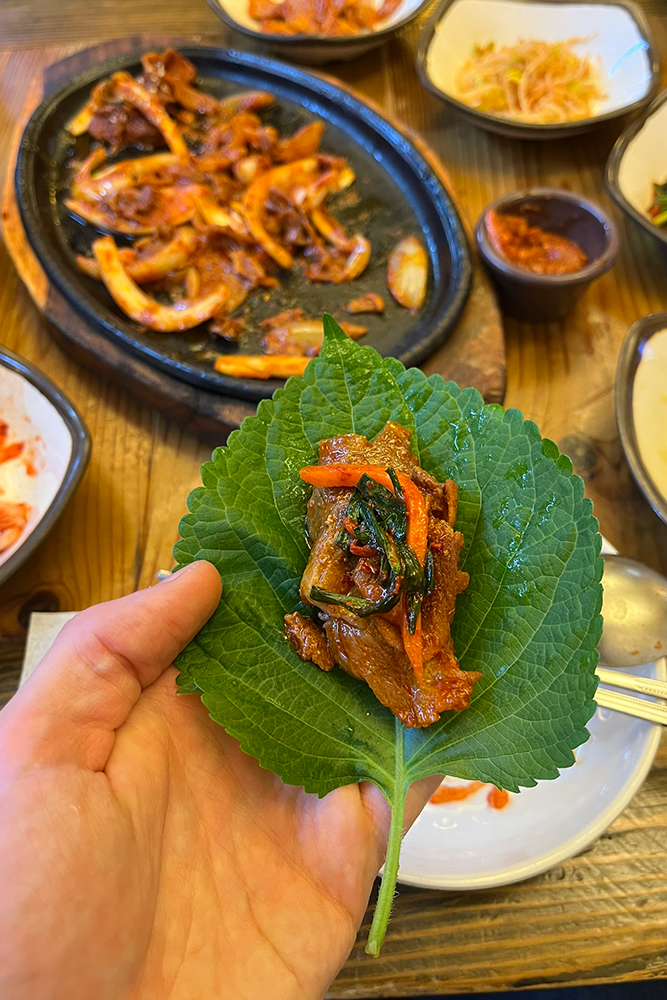Mail from … South Korea PhD student Jan Hitzegrad from the Leichtweiß Institute of Hydraulic Engineering reports on his research stay in Seoul
General information
I was here for a research visit:
Seoul National University in Seoul, South Korea.
What I did in Seoul:
My PhD aims to study the interactions between waves and oyster reefs created by the Pacific oyster. The Pacific oyster is an invasive species on the German North Sea coast and has been able to spread here as a probable consequence of rising water temperatures linked to climate change. Oysters form reefs with extremely rough surfaces that influence waves and currents as well as sediments and ecological composition. The tidal flats on the west coast of South Korea provided a very good opportunity for a comparative study, as the Pacific oyster is native to the area. During my research stay at Seoul National University, I worked with the team at the Coastal Engineering Laboratory. Together we conducted a field study on an oyster reef on the west coast of Korea near Jebudo Island.
Jebudo, a popular holiday island, is known for its spectacular tidal range of up to nine metres and its extensive mudflats, which are rich in mussels, crabs and oysters. Similarities and differences to oyster reefs in Germany could be seen in the mudflats. The central area of the reef and isolated areas at the edges are similar to reefs in Germany. However, in the Korean mudflats there are also stones and other rocky surfaces to which the oysters can attach themselves, thus providing additional structure.
My stay lasted a total of:
Four weeks.
That’s why I decided to go abroad:
I had the opportunity to work with enthusiastic professors and PhD and Masters students, to do research together, to share research results and to discuss new ideas. The exchange and collaboration gave me a new perspective on my doctoral topic.
Local life
This is how I live in Seoul:
Seoul National University runs its own hotel with apartments for academics staying longer. So I lived right on campus. But I didn’t spend much time here. I was in the office most of the week and explored the city on the weekends.
What makes research in South Korea different from research in Germany?
I experienced that people in South Korea are considered to be very hardworking. Doctoral and master’s students often spend the whole day at the university. In the evening, they eat together and continue working until ten or eleven.
The university is much more compact than TU Braunschweig. The campus is just outside the city, surrounded by mountains. The entire Faculty of Civil and Environmental Engineering is housed in one building. The laboratories are in the basement and the offices of the professors, academic staff and students are on the upper floors.
That’s what I’ve learnt here during the first three days:
Because of the time difference, the first emails don’t arrive in my inbox until around 4pm.
The biggest challenge during my stay has been …
In restaurants, you often order from a screen rather than from the staff. There is also often no English translation. Sometimes you try something unexpected.
I will take that home with me:
The research stay has deepened my understanding of oyster reefs once again. In particular, the field study and the exchange with the local colleagues helped to put the oyster reefs in the German Wadden Sea into perspective and to better assess possible future developments of oyster reefs in Germany. The research visit also helped to further strengthen the links between the Leichtweiß Institute of Hydraulic Engineering at Technische Universität Braunschweig under Professor Nils Goseberg and CELAB at Seoul National University under Professor Yong Sung Park.
Good to know
Beyond the professional exchange, it was very exciting to get to know the Korean culture with colleagues and friends. Seoul is an exciting city with a mix of tradition and modernity. Temples and teahouses alternate with skyscrapers and modern architecture. The best coffee is served in semi-derelict buildings, next to a car repair shop and the next building is the new flagship store of some Korean sunglasses brand. A particular highlight was the Korean cuisine and food culture. Food is usually shared in a group, almost everything is eaten with chopsticks and everything is served with kimchi ─ fermented cabbage with chilli and garlic.
What faux pas should you avoid in South Korea?
Social etiquette is very much about respect and hierarchy. For example, there are five ways to say “thank you”, which can be used incorrectly. However, as a guest, this is usually forgiven.
I give this tip to other researchers who want to go abroad:
Doing research abroad, learning about new research topics and networking internationally is an enriching experience that I would definitely recommend during a PhD.
There are many other ways to go abroad. My research stay was funded as an Erasmus+ internship and by the Goedhart Fund of the Hafentechnische Gesellschaft. The International House offers great support throughout the whole process.

